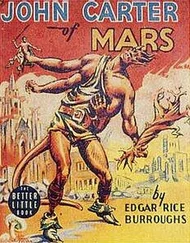Philip Dick - Mary And The Giant
Здесь есть возможность читать онлайн «Philip Dick - Mary And The Giant» весь текст электронной книги совершенно бесплатно (целиком полную версию без сокращений). В некоторых случаях можно слушать аудио, скачать через торрент в формате fb2 и присутствует краткое содержание. Жанр: Фантастика и фэнтези, на английском языке. Описание произведения, (предисловие) а так же отзывы посетителей доступны на портале библиотеки ЛибКат.
- Название:Mary And The Giant
- Автор:
- Жанр:
- Год:неизвестен
- ISBN:нет данных
- Рейтинг книги:4 / 5. Голосов: 1
-
Избранное:Добавить в избранное
- Отзывы:
-
Ваша оценка:
- 80
- 1
- 2
- 3
- 4
- 5
Mary And The Giant: краткое содержание, описание и аннотация
Предлагаем к чтению аннотацию, описание, краткое содержание или предисловие (зависит от того, что написал сам автор книги «Mary And The Giant»). Если вы не нашли необходимую информацию о книге — напишите в комментариях, мы постараемся отыскать её.
Mary And The Giant — читать онлайн бесплатно полную книгу (весь текст) целиком
Ниже представлен текст книги, разбитый по страницам. Система сохранения места последней прочитанной страницы, позволяет с удобством читать онлайн бесплатно книгу «Mary And The Giant», без необходимости каждый раз заново искать на чём Вы остановились. Поставьте закладку, и сможете в любой момент перейти на страницу, на которой закончили чтение.
Интервал:
Закладка:
"Mostly B's."
From his coat pocket Schilling brought his black leather notebook and fountain pen. He began to make clear, large lines on the paper. "Let's look at this in order. First," he made a note, "you should leave this town."
"Yes." She was watching the pen write; leaning forward, she followed the black lines. But still she showed no emotion, no expression; he couldn't tell how she felt. The tightness was still there; she had not let go. Perhaps, he thought, she never would.
"You'll have to live somewhere. Now, you could move in with a bunch of girls, or one girl, or at the Y, or at a boardinghouse. But I think you'd be happier if you lived by yourself, so you had a place to withdraw to. You should have some sort of a retreat, a place to hide." He put down his pen. "You need that. You have to have a way out. Isn't that so?"
"Yes," she said.
He went on writing. "You might look for a place in North Beach, around Telegraph Hill. Or you might go out toward the Marina. Or even around Fillmore. That's the colored section; bars and shops, lots of noise. Or, if you have enough money, you could rent a swank apartment in one of the new suburbs, like Stones-town. I've never seen it, but they say it's right out of the future."
"I've seen it," she said. "Some insurance company built it, the whole town. It's near the ocean."
"Now the job." He sipped his coffee. "I've been doing a lot of thinking about that. As I see it, you have two good choices. Where have you worked? Go over that again for me."
Mary Anne said: "I worked for a loan company, as a receptionist. And then I worked at a furniture factory."
"Doing what?"
"Stenographer and typist. I hated that."
"And then the phone company?"
"Yes," she said. "And then for you."
"Don't get a job in a small office. Don't get in with six other girls and a messenger. Do one of two things. Either go to work for a private professional man, a doctor or a lawyer or an architect, somebody with a modern office where there's nobody else around you, where you can be in charge. One of those small modern places, with glass and bricks and recessed lighting, a place that's clean and bright."
"What's the other?"
"Or get in with a big outfit-Shell Oil, or the Kaiser Foundation. The Bank of America, even. An organization so large that you'll have an impersonal system and room to advance. And with really specialized jobs. An outfit so big that-"
Mary Anne said: "Maybe I could work for a record store in San Francisco. Like Sherman Clay."
"Yes. You could." And he felt, then, that he had achieved something, that perhaps, after all, he could bring her permanently to the surface and help her.
If he helped her, if he meant to unravel her retreat into despair, he would have to do it now. She was watching him, looking at his notes, listening to what he had to say. He had reached her. Her eyes were not blank with fear; she was rational, attentive, a young woman following his planning.
"I am planning it out for you," he said.
"Thank you."
"Does that bother you?"
"No," she said.
"Do you want anything more to eat? Your food is cold; how about the coffee?"
Mary Anne said: "This morning I was late ... you know what I did?"
"What did you do?"
"I rented a room. I moved my stuff from the apartment. I told the woman to go jump in the creek."
He was not really surprised. But it was not easy to hear. And he must have showed it, because Mary Anne said:
"I'll pay you the money back-the fifty dollars rent. I'm sorry, Joseph. I meant to tell you right away."
"How'd you move your stuff?"
"I called a cab. There's nothing left in the apartment; just paint and newspapers."
"Yes," he said. "The paint."
"Some is in cans; some is on the walls." The quickness entered her voice. "What do you suppose? What else?"
"Is the room nice?"
"No."
"I'm sorry," he said uneasily. "Why isn't it?"
"It's in a lousy neighborhood. I have a view of-neon signs and garbage cans. But it's just fine; it's just what I want. Twenty dollars a month, something I can pay for."
Schilling turned to a fresh page in his notebook. "What's the address?"
"I forget." Suddenly she was staring at him with the same old hard blankness.
"You must have it written down somewhere."
"Maybe so. Maybe not. I recognize it when I see it."
"Did Beth and Tweany find you there?"
"Yes."
Then, he reasoned, it was in the colored section. She had probably found it through somebody at the Wren. The owner, most likely. "How do you recognize it?"
"No," she said.
"No what?"
"I'm not going to tell you where it is."
He had made a mistake. He had pushed her too far. "Okay," he said agreeably, closing his notebook. "That's all right with me."
"And I'm leaving," she said.
"The store?"
"I'm quitting."
Rationally, he nodded. "All right. Whatever you want." He had accepted it already; it was reality and it had to be faced. "Now, what about money?"
"I have enough," she said.
"Whatever you need," Schilling said, "I'll give it to you.
Over a period of months, preferably. I'll give you enough to go where you want and get started."
She studied him wildly.
"I'll try to get you the kind of job you want," he went on. "But there I'm not worth much. I haven't been out here in years, and my contacts are bad. I know the record wholesalers in the city, though; I might be able to do something there. You could talk to Sid Hethel. Maybe he can do you a good turn. Anyhow, you should drop in to see him if you're going up there."
"I'm going somewhere else," she said.
"Back East?"
"No." She was breathing rapidly. "Don't ask me."
In spite of his care, he had brought her around to this. So he had done nothing. He could not help her after all. He could only try to manage himself so that no further harm was brought to her.
This was the moment, he realized, when the great masterstroke was needed, the solution that would clear up everything. But he did not have it. He sat only a foot from her, close enough to touch her, and he could not do a thing. All his knowledge, all his years, the understanding and wisdom he had built up in many countries, all of it was useless. This one, thin, frightened, small-town girl could not be reached.
"It's up to you," he said.
"What is?"
"I'm afraid I can't help you. I'm sorry."
"I don't want anybody to help me," she said. "I just want people to leave me alone."
"Mary Anne-" he said. Her hands rested on the table, white against the checkered tablecloth. "I love you," he said. He reached out to touch her ...
... but she drew away. The man's hand, as if it were intrinsically alive, was creeping, fumbling at her. She watched, fascinated. The hand located her, and still the old man rambled on, talked and mumbled even as he took hold of her.
As his fingers closed over her flesh, Mary Anne kicked him, kicked his ankle with the sharp toe of her shoe, and at the same moment scrambled back and up. Springing to her feet, she leaped away from the table. Her coffee cup spun and splashed over its rim, turning on its side and spurting fluid down her skirt, onto her leg.
Across from her, Joseph Schilling gave a little snuffling cry of pain; he reached down and felt for his damaged ankle. On his face was an expression of acute pain.
She stood out of reach for a moment, panting, and then she turned and walked away from the table. There was nothing in her mind, no thoughts, no tensions, only the awareness of the candles, the shape of the waiter, the watching patrons. She seemed to be in a hazy, noiseless medium that was all around her. The patrons, the curious bystanders, were transformed into fish-faces, grotesque and expanded until they filled the room. And she was cold, very cold. A numb and frigid quiet crept into her mind and lodged there; with a great effort she shook her head and saw around her, saw where she had come.
Читать дальшеИнтервал:
Закладка:
Похожие книги на «Mary And The Giant»
Представляем Вашему вниманию похожие книги на «Mary And The Giant» списком для выбора. Мы отобрали схожую по названию и смыслу литературу в надежде предоставить читателям больше вариантов отыскать новые, интересные, ещё непрочитанные произведения.
Обсуждение, отзывы о книге «Mary And The Giant» и просто собственные мнения читателей. Оставьте ваши комментарии, напишите, что Вы думаете о произведении, его смысле или главных героях. Укажите что конкретно понравилось, а что нет, и почему Вы так считаете.










